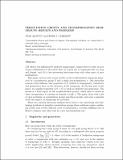Files in this item
Permutation groups and transformation semigroups : results and problems
Item metadata
| dc.contributor.author | Araujo, Joao | |
| dc.contributor.author | Cameron, Peter Jephson | |
| dc.contributor.editor | Campbell, C. M. | |
| dc.contributor.editor | Quick, M. R. | |
| dc.contributor.editor | Robertson, E. F. | |
| dc.contributor.editor | Roney-Dougal, C. M. | |
| dc.date.accessioned | 2016-03-31T23:01:59Z | |
| dc.date.available | 2016-03-31T23:01:59Z | |
| dc.date.issued | 2015-10 | |
| dc.identifier | 228694995 | |
| dc.identifier | 07e9c2c8-9ff1-4b50-8d74-91244d3a22a8 | |
| dc.identifier | 84954147079 | |
| dc.identifier.citation | Araujo , J & Cameron , P J 2015 , Permutation groups and transformation semigroups : results and problems . in C M Campbell , M R Quick , E F Robertson & C M Roney-Dougal (eds) , Groups St Andrews 2013 . London Mathematical Society Lecture Note Series , vol. 422 , Cambridge University Press , pp. 128-141 . | en |
| dc.identifier.isbn | 9781107514546 | |
| dc.identifier.issn | 0076-0552 | |
| dc.identifier.other | ORCID: /0000-0003-3130-9505/work/58055558 | |
| dc.identifier.uri | https://hdl.handle.net/10023/8532 | |
| dc.description.abstract | J.M. Howie, the influential St Andrews semigroupist, claimed that we value an area of pure mathematics to the extent that (a) it gives rise to arguments that are deep and elegant, and (b) it has interesting interconnections with other parts of pure mathematics. This paper surveys some recent results on the transformation semigroup generated by a permutation group G and a single non-permutation a. Our particular concern is the influence that properties of G (related to homogeneity, transitivity and primitivity) have on the structure of the semigroup. In the first part of the paper, we consider properties of S=<G,a> such as regularity and generation. The second is a brief report on the synchronization project, which aims to decide in what circumstances S contains an element of rank 1. The paper closes with a list of open problems on permutation groups and linear groups, and some comments about the impact on semigroups are provided. These two research directions outlined above lead to very interesting and challenging problems on primitive permutation groups whose solutions require combining results from several different areas of mathematics, certainly fulfilling both of Howie's elegance and value tests in a new and fascinating way. | |
| dc.format.extent | 256254 | |
| dc.language.iso | eng | |
| dc.publisher | Cambridge University Press | |
| dc.relation.ispartof | Groups St Andrews 2013 | en |
| dc.relation.ispartofseries | London Mathematical Society Lecture Note Series | en |
| dc.subject | Permutation groups | en |
| dc.subject | Transformation semigroups | en |
| dc.subject | QA Mathematics | en |
| dc.subject | Algebra and Number Theory | en |
| dc.subject.lcc | QA | en |
| dc.title | Permutation groups and transformation semigroups : results and problems | en |
| dc.type | Book item | en |
| dc.contributor.institution | University of St Andrews. Pure Mathematics | en |
| dc.contributor.institution | University of St Andrews. Statistics | en |
| dc.contributor.institution | University of St Andrews. Centre for Interdisciplinary Research in Computational Algebra | en |
| dc.description.status | Peer reviewed | en |
| dc.date.embargoedUntil | 2016-04-01 | |
| dc.identifier.url | http://www.cambridge.org/gb/academic/subjects/mathematics/algebra/groups-st-andrews-2013?format=PB | en |
This item appears in the following Collection(s)
Items in the St Andrews Research Repository are protected by copyright, with all rights reserved, unless otherwise indicated.

